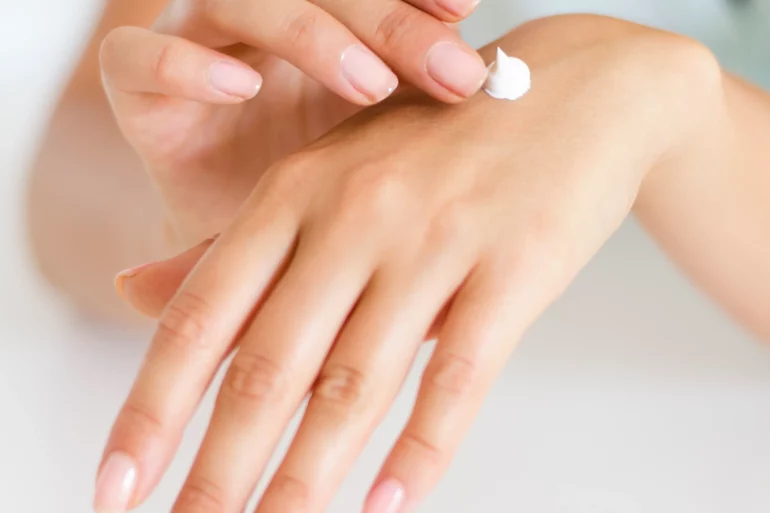We have often observed that winter can seriously wreak havoc on your skin. It seems that there isn’t any escape. The chilling cold and gusty conditions outside leave your skin red and raw. Even indoor heat eliminates moisture from the air and your skin.
Surprisingly, the things that make winter delightful, such as sitting by a roaring fire, can dry your skin as well. According to the University of Tennessee Medical Center, though a hot shower can warm you up, hot water clears the skin of its natural oils.
Luckily, there are multiple ways to fight the causes of dry skin and maintain your moist and supple throughout the season, including some easy modifications to your daily routine. In this article, we’ve identified a few simple tips for glowing winter skin that dermatologists have approved.
Maintain Coolness of Thermostat Temperatures for Comfort
Whenever you wish to escape dry, chilly outdoor air, you feel allured to crank up the heat as soon as you reach indoors. However, the American Osteopathic College of Dermatology (AOCD) notes that high central heat can make the air in your house even drier. You may try a cool yet comfortable setting to prevent further drying of your skin. The recommended temperature should be 68 to 75 degrees F.
Use a Humidifier to Maximizing Moisture
Usually, during the chilling winter months, the outdoor air holds onto less water and is drier and colder. A humidifier in your home or office will help in the restoration of moisture in the air. According to the Cleveland Clinic, this will keep your skin hydrated.
Run a humidifier in your entire house or rooms you stay in the most. This will help to keep indoor humidity levels between 30 and 50 percent. You may also turn it on overnight while asleep. If you’re unaware of the humidity levels of your home, then buy a humidity meter.
Invest in Gentle, Fragrance-Free Cleansers
Bar soap can deteriorate dryness by stripping the natural oils of the skin and disrupting the microbiome. If yours is dry skin, then use body wash. You should opt for washes that are meant for sensitive skin or claim to be dye-free and fragrance-free. They often contain fewer drying ingredients and more moisturizing ones like oils, hyaluronic acid, shea butter, ceramides, and oats.
Even the American Academy of Dermatology (AAD) also recommends products labeled “fragrance-free”. It’s expected that unscented products may contain chemicals to neutralize scents that may irritate.
Lower Water Temperatures for Showering and Hand-Wash
Long, steamy showers may appear to be an amazing idea if it’s cold and windy. However, very hot water can dry out the skin. The AAD suggests that a warm shower or bath for 5 to 10 minutes will less likely to deteriorate dry skin compared to a hot one.
Whenever you find that the water turns your skin red, then it’s exceedingly hot.
Avoid using too hot water while washing your hands. This is particularly true if your hands tend to be red, scaly, and itchy. These are potential symptoms of eczema on the hands, as per the National Eczema Association. An eczema flare-up can be activated by dry skin from exposure to hot water or breezy winter air.
According to the Centers for Disease Control and Prevention (CDC), cooler water is as effective as warm water to remove germs and causes less irritation to the skin.
Frequently Moisturize Hands, Particularly After Washing
Hand-washing is crucial, particularly when the flu, common cold, and COVID-19 are a threat. However, repeated washing will worsen the condition of your hands.
The remedy is to apply hand cream after each washing. Wear waterproof gloves to protect your hands while you wash dishes or clean around the house. Moreover, you can also put cotton gloves on after applying moisturizer to let your skin absorb the cream.
Amend Your Skin-Care Regimen for the Season
Once you find that your skin is dry and itchy, you should scale back on the application of skin-care products containing alpha-hydroxy acids (AHAs) and retinoids on the face. These may worsen the issue and may even be a symptom of irritant dermatitis. It’s a skin reaction that occurs after prolonged exposure to an irritating substance. After the healing of the skin, you’re free to restart the retinoid and alpha-hydroxy acids slowly.
Apart from skipping AHAs and retinoids while the skin on your face is dry, AAD suggests avoiding products containing alcohol and fragrances. This will enable the skin to retain its natural oils.
Rather, choose oils and creams for your skin-care routine. You should also consider applying a moisturizer on top of your toner as the toner may cause dryness.
Before going to bed, apply a richer moisturizer on your body, including your arms, legs, and midsection. You should better opt for occlusives, like petrolatum, squalene, and shea butter. These ingredients seal in moisture by forming a protective seal over the skin. You can also choose a product with moisturizing humectants, like hyaluronic acid and glycerin. These are extraordinary ingredients for the face, as they let the skin breathe. They are most unlikely to contribute to acne.
Don’t even forget to moisturize the rest of your body. For the body during the winter, you can also choose a thicker cream that comes out of a jar or tube as opposed to a pump. Lotions coming out of a pump are thinner and waterier. Accordingly, they can often just evaporate from the skin’s surface after application. They aren’t thick and moisturizing enough.
For your lips, a moisturizing balm like some petroleum jelly or another ointment can help to cure dry, cracked lips to prevent them from becoming roughened.
Conclusion
There are more skin remedies for the winter season, especially in adverse weather conditions. If you religiously follow the tips mentioned above, then there is no reason why you can flaunt healthy winter skin.



